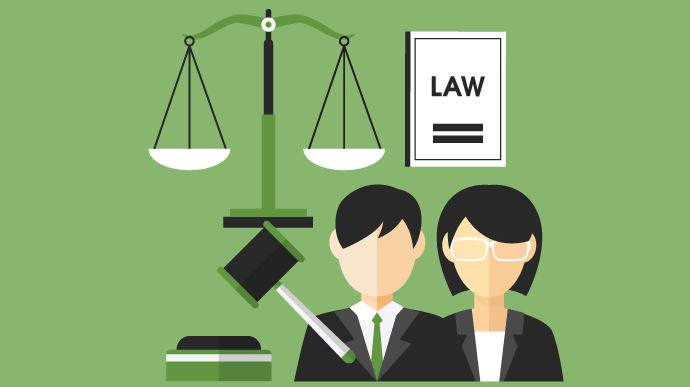Introduction :
In the realm of law, where justice and order converge, lawyers play a crucial role as defenders, advocates, and problem solvers. The legal profession is a multifaceted domain, intertwining knowledge, skills, and ethics. Lawyers tirelessly navigate the intricacies of the legal labyrinth, striving to protect rights, uphold justice, and provide expert guidance to those in need. This article sheds light on the fascinating world of lawyers, exploring their roles, responsibilities, and the challenges they face in their pursuit of justice.
I. The Evolving Role of Lawyers :
Over the centuries, the role of lawyers has evolved from mere interpreters of law to strategic advisors and influential figures. Today, lawyers possess a diverse skill set that extends beyond courtroom advocacy. They engage in research, negotiation, drafting contracts, and counseling clients, addressing legal issues across a broad spectrum of specialties, including criminal law, corporate law, family law, and intellectual property law. As the legal landscape constantly evolves, lawyers must adapt to emerging technologies, new legislation, and societal changes, ensuring they remain at the forefront of legal knowledge and innovation.
II. The Road to Becoming a Lawyer :
Becoming a lawyer requires dedication, perseverance, and extensive education. Aspiring lawyers typically undertake a rigorous academic journey, pursuing a law degree after completing their undergraduate studies. Law schools provide a comprehensive legal education, imparting knowledge of substantive and procedural law, legal research, and critical thinking skills. Additionally, aspiring lawyers must pass a bar exam in their jurisdiction to gain the necessary professional credentials to practice law. This demanding process ensures that lawyers possess the expertise and competence needed to navigate the complexities of legal cases and safeguard the interests of their clients.
III. Balancing Advocacy and Ethics :
Lawyers are not only entrusted with the responsibility of defending their clients’ rights but also upholding the principles of justice and ethics. They are bound by a code of professional conduct that requires them to act with integrity, maintain confidentiality, avoid conflicts of interest, and zealously represent their clients within the bounds of the law. Striking the delicate balance between advocacy and ethics can be a challenging task, as lawyers must work diligently to ensure justice is served while remaining committed to their ethical obligations.
IV. Challenges in the Legal World :
The legal profession is not without its challenges. Lawyers often face heavy workloads, tight deadlines, and the pressure to consistently deliver favorable outcomes for their clients. Balancing personal and professional life can be demanding, as lawyers dedicate long hours to case preparation, research, and court appearances. Additionally, the adversarial nature of legal disputes can be emotionally taxing, requiring lawyers to maintain composure and objectivity amidst heated arguments and contentious situations. Moreover, the rapidly evolving legal landscape demands continuous learning and adaptation to stay abreast of changes in legislation, technology, and societal dynamics.
Conclusion :
Lawyers play an indispensable role in society, safeguarding justice, protecting rights, and guiding individuals and organizations through the complexities of the legal system. Their unwavering dedication, knowledge, and ethical commitment contribute to the pursuit of a fair and equitable society. Through their tireless efforts, lawyers navigate the legal labyrinth, bringing clarity, resolution, and justice to those in need.
